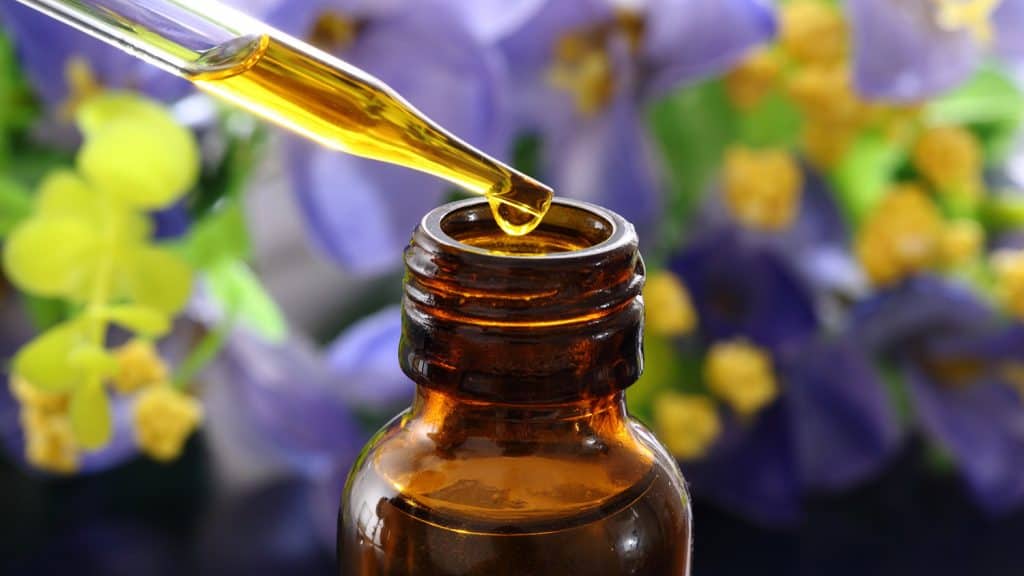
BY SALLY WONG • UPDATED: DECEMBER 8, 2020 • HEALTH AND FITNESS
Essential oils have garnered a lot of attention lately for their powerful health benefits. You may have come across essential oils being sold in shopping centers, and thought, “Well, they smell good, but do they really have any powers beyond that, or is this just another health fad?”
While it’s always important to do your research when seeking new ways to improve your health, you can rest assured that essential oils do in fact have many benefits that go far beyond a pleasant aroma.
In fact, they have been used for ages around the world in order to promote human health.
Mental Benefits of Essential Oils
Essential oils are actually extremely beneficial to your mind. As we tend to associate good health with eating well, getting sleep and exercising the mind can sometimes get neglected. However, the mind is a vital component to our overall health and well-being.
There are things you probably do on a routine basis to keep your body healthy, like going for swims or for long walks. This is because you know your body will begin to deteriorate without regular exercise. The same is true of the mind; if we don’t continuously provide the mind with nourishment and exercise, then it too will lose its strength.
Essential oils can play a big role in keeping your mind healthy and “in shape.” Read on for three surprising ways essential oils can benefit your mind.
Reducing Anxiety with Essential Oils
If you are someone who suffers from anxiety, essential oils can be used to help alleviate anxiety attacks. And even if you do not suffer from anxiety, essential oils can still help to calm your mind.
When you inhale the scents of essential oils, your nose communicates with the limbic system of your brain, which is the part of the brain that controls emotions. It is also connected to the part of the brain that controls hormone balances, stress levels, heart rate, blood pressure, memory and breathing.
The limbic receives the signals from the nose in order to release emotions of peace and contentment brought on by the oils.
Studies have shown that lavender can be a powerful essential oil to help reduce anxiety. Other excellent options are sweet orange, bergamot, sage and angelica.
Activating your parasympathetic nervous system is the key to staying calm no matter what craziness is occurring in the world around us.
Your sympathetic nervous system mobilizes your physical and mental response to threats and stress. It releases stress hormones, like cortisol and adrenaline, to help you fight or flee. Your muscles tense and your vision narrows, allowing you to narrow your focus and pay close attention to the external, physical world.
Inhaling or topically applying Parasympathetic™ behind the earlobe on the mastoid bone where the vagus nerve is closest to the surface of your body helps stimulate your vagus nerve to activate the parasympathetic state and calm your nervous system.
Alleviating Depression with Essential Oils
When feeling down and out for an extended period of time, many people turn to prescribed medication. While these can sometimes be beneficial, they often come with harmful and negative side effects and in the long run end up doing more harm than good.
Essential oils can be excellent alternative to alleviating feelings of depression, as there are no side effects involved. In this case, the nose also communicates with the limbic system in order to help uplift your mood and induce feelings of relaxation.
Bergamot oil makes for a great anti-depressant, as a few whiffs can help stimulate feelings of joy and increase blood circulation to help re-energize the body and mind. A study conducted in Thailand proved that it is also powerful in helping treat anxiety.
Some other oils that are great for helping to fight depression are chamomile, jasmine, sage, orange and frankincense.
Improving Memory and Concentration
You may already be reading and doing crossword puzzles to help keep your memory and concentration up to par. Incorporating essential oils as a part of your memory health regime can prove to be very beneficial.
In particular, scientists have found that rosemary can help boost memory by fifteen percent. In this study, scientists tested participants using a set of perceptive memory-related questions in three different types of rooms. One room was infused with rosemary, another with lavender, and the third was given no scent. Participants’ test scores significantly improved in the room infused with rosemary.
Other oils that can help improve memory and focus include basil, sage, peppermint and cyprus.
To help enhance your focus, apply 2- 3 drops of Focus™ over your temples 2-3 times daily or as needed during moments where additional focus is needed. You can also put a few drops on a tissue or cotton ball and hold it where you can smell it.
These are just three ways essential oils can help benefit your mind. If you suffer from anxiety or depression or want to improve your memory, they are certainly worth investing in. However, every mind works differently, so it is always important to consult a physician before taking any drastic measures.
It is also very important to note though that not all essential oils are produced equally. To ensure you are reaping the maximum benefits from the oils, make sure you investigate the brand, as some companies who are strictly in it for profit over-dilute the oils or add harmful chemicals to them to reduce the cost of production.
Where and how have you used essential oils? Have you ever used essential oils to reduce anxiety or help with depression? Do you have a favorite essential oil that you love to use? What other benefits of essential oils have you experienced? Please share in the comments.

Recent Comments